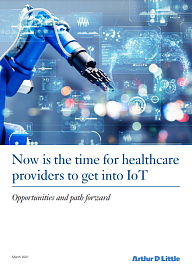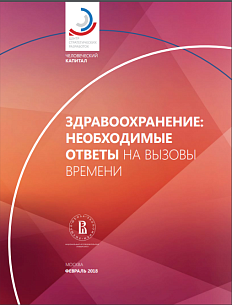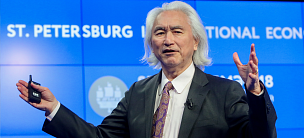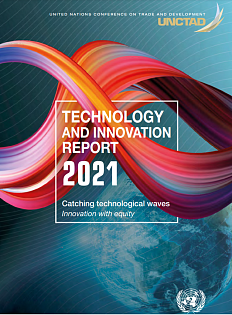The research prepared by the consulting firm Arthur D. Little examines trends in the medical field related to the development of digitalization processes and the implementation of the Internet of Things.
The Roscongress Foundation presents the salient points of the publication accompanied by fragments of broadcasts of relevant panel discussions from the business programme of international events held by the Roscongress Foundation.
Despite the fact that the development of the Internet of Things in healthcare has been slow for a long time, the industry is now growing rapidly.
The main reason for the initially slow adoption of the Internet of Things (IoT) in healthcare is that providers underestimated the unique needs of this industry, which is often considered conservative and slowly developing. But now the situation is changing.
Healthcare organizations are currently rethinking their information and communications technology (ICT) architecture, moving away from outdated «homegrown» solutions to more corporate implementations that provide ecosystems and service-based design. In addition, the global spread of COVID-19 has forced health care providers to accelerate the adoption of telemedicine, e-health, and other remote technology solutions to ensure patient safety by reducing the risk of infection. Such innovations will increase familiarity with digital tools and accelerate the development of new processes, leading to accelerated adoption of IoT solutions on a broader scale. Also, payers and insurers are encouraging health care organizations to rethink data management through greater information sharing. In turn, device manufacturers are increasingly digitizing their products and evaluating app developers and software companies to determine how to produce valuable data and easy-to-use interfaces.
There are already prerequisites for the introduction of the Internet of Things in the field of healthcare.
For example, while the most common connectivity solution in most hospitals is a combination of cable and Wi-Fi connection, and most IoT use cases in medical facilities are low-capacity device tracking solutions that increase efficiency but have little impact on costs or improve patient outcomes, there are technical solutions that are already available.
These technical solutions could meet the needs of health care providers better than those often used today. Private 4G and LTE network solutions available on the market today cover the needs of a large set of use cases that are still not widely used, but have the potential to reduce administrative workloads and improve healthcare operations.
Video: https://roscongress.org/sessions/internet-veshchey-preodolenie-pregrad/search/#00:18:58.687
When planning the implementation of the IoT in medical processes, one must take into account the whole situation and consider the long-term development.
While the world of the Internet of Things may seem complex and contain many solutions, most use cases are built around a number of basic functions, ranging from simple tracking solutions to sophisticated automation. These features, in turn, can be used to ensure the key pillars of a smart hospital: clinical excellence, patient-centered care, and operational effectiveness.
But once patient data comes into play, the level of difficulty increases. That is why many organizations choose solutions that connect equipment but not patient data directly. For example, medical facilities could use smart hospital beds rather than patient tracking devices to better track patient admissions or movements.
This is why the authors of the research note that it is important to consider the whole picture, starting with use cases such as smart hospital beds. This will allow organizations to build the appropriate infrastructure as well as plan future requirements to ensure the possible expansion of the infrastructure . The great benefits of the Internet of Things will not derive from connecting a few pieces of equipment, but rather when more «things» are connected, more data is generated and more advanced use cases and greater benefits are included.
The research notes that it is important to evaluate a portfolio of use cases when planning the implementation of the Internet of Things. To do this, the authors advise the following steps:
1. Evaluation of the potential IoT use cases
2. Overview of existing technical architecture and infrastructure
3. Analysis of the impact on the organization and processes
4. Scalability assessment
5. Calculation of final business cases and prioritization
6. Roadmap creation
For more information, see the special sections of the Roscongress Foundation Information and Analytical System: Medicine and Healthcare devoted to the development of medicine and health care fields, also Internet of Things, IoT and Digitalization, which provide information on the processes of implementing new technologies.






